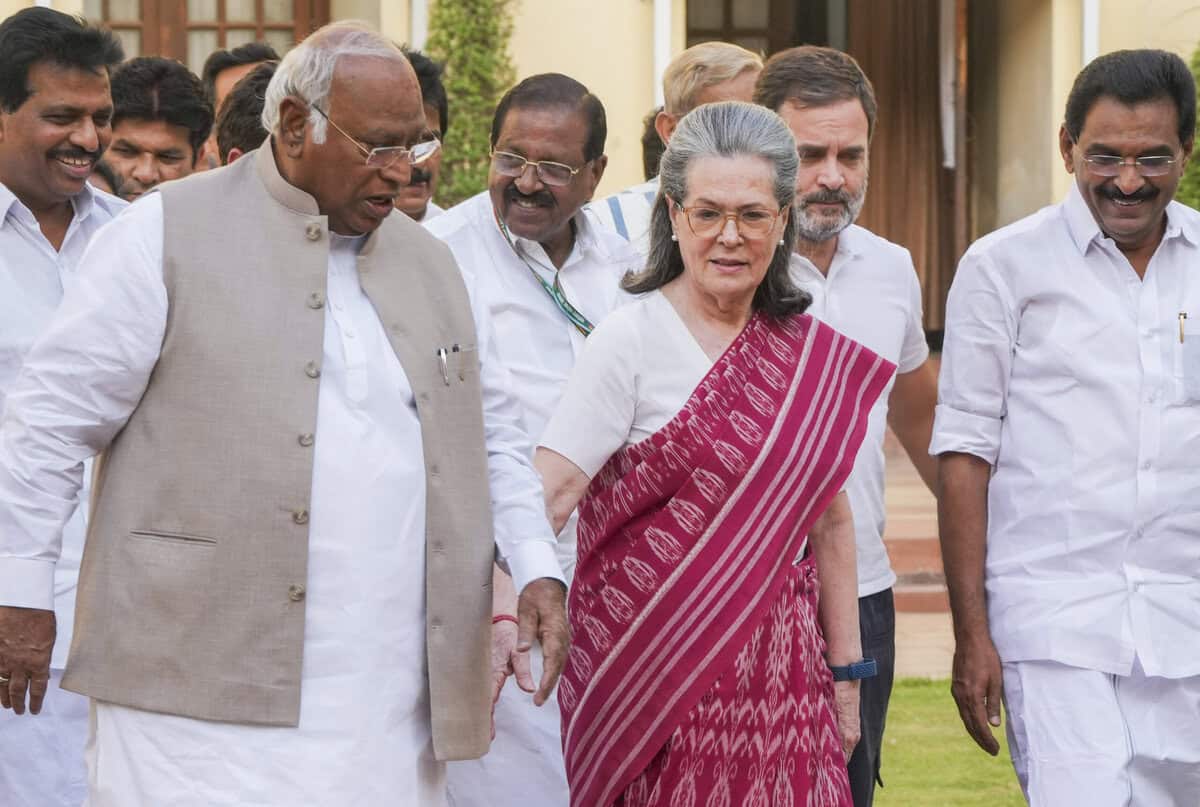
The 18th Lok Sabha has the potential for positive functioning. The Modi government said they wanted consensus. Prime Minister Narendra Modi sought agreement and criticised the Opposition for causing problems. Modi stated that in his third term, his Government would aim to build consensus.
The Leader of the Opposition, Rahul Gandhi, also emphasised the importance of the Opposition’s role in representing the ‘voice of the people’ in the House. But at the start of the session, they couldn’t agree on important issues.
Congress leader Sonia Gandhi wrote in an editorial recently in an English daily that Prime Minister Narendra Modi was “Preaching consensus, provoking confrontation.”
Sonia Gandhi criticised Prime Minister Modi for not acknowledging the electoral outcome and for promoting confrontation over consensus.
Sonia unhappy with LS functioning
She expressed disappointment with the first few days of the 18th Lok Sabha, pointing out that there’s no sign of a changed attitude from the Prime Minister.
The 18th Lok Sabha is a significant shift in Indian politics, marking Modi’s first time in a decade leading a Parliament from a less dominant position. This shift in power dynamics requires him to navigate a coalition and contend with a more assertive opposition. The Modi government now relies on crucial support from two key allies- JD(U) and TDP. This means the NDA allies could significantly influence the Government’s plans and actions, a departure from the substantial majority the BJP enjoyed in 2019 and 2014. The increased presence of the Opposition in various parliamentary panels is likely to generate greater engagement.
The first session of the current Lok Sabha began with a strong Opposition asserting its rights. Before the session started, there was a dispute over the appointment of BJD MP Bhartruhari Mahtab as the pro-tem Speaker to administer. The Congress and the INDIA bloc members felt that Congress MP Kodukkunil Suresh, elected eight times, should have been given the position.
Confrontation begins
However, the BJP argued that they followed the rules. Mahtab was elected to the House seven times in succession, while Suresh lost two elections. This appointment is significant as the Speaker plays a crucial role in the Indian parliamentary system as the head of the Lok Sabha, responsible for maintaining order, conducting debates, and ensuring the House’s smooth functioning.
Secondly, Rahul Gandhi said he would back Om Birla, the NDA candidate, but only if the Deputy Speaker position, usually given to the Opposition, was assured. While Thambi Durai of the AIADMK, a BJP ally at the time, served as the Deputy Speaker from 2014 to 2019, the position remained vacant from 2019 to 2024. Article 93 states two Lok Sabha members will be selected as the Speaker and Deputy Speaker.
Om Birla has been re-elected as the Speaker of the 17th Lok Sabha, bringing continuity and stability to the House.
After being congratulated, the newly elected Speaker took out a paper and read a resolution against the 1975 Emergency imposed by late Prime Minister Indira Gandhi. This surprising move caught many off guard and caused tension with Congress, as the Emergency was declared on the same date in 1975. This led the Leader of the Opposition, Rahul Gandhi, to lead a group to the Speaker to express their objection to a political statement from the chair.
President ignores serious issues
Fourthly, some opposition parties thought the president’s inaugural speech to a joint session of Parliament ignored the country’s most serious problems. Also, the Opposition called for removing the Sengol, which the Prime Minister had installed with much fanfare before the Election.
Fifthly, Rahul and other Opposition MPs proposed discussing the leakage of the NEET question paper first. The Speaker, however, insisted that a discussion on the Motion of Thanks to the President’s address, a significant issue, should be held first.
The first week’s confrontation shows despite the decrease in numbers, the BJP is unlikely to change its working methods. An energised opposition will also be belligerent.
BJP unlikely to change
The proceedings in Rajya Sabha also saw disruptions and adjournments as Opposition members raised slogans demanding a discussion on the NEET question paper leak issue. There was also a heated argument between the Chairman and Congress President Mallikarjun Kharge.
The functioning of the House lies with the Speaker, a position of utmost importance in maintaining order and ensuring fair debates. The Rajya Sabha Chairman presides over the Upper House.
A functioning House is necessary and a prerequisite for a healthy democracy. The need for constructive cooperation between the Government and the Opposition cannot be overstated. The House functions effectively in addressing the pressing issues facing the nation.
Both sides must recognise the truth and collaborate to make Parliament more organised. After all, the Government is accountable to Parliament. The parliamentary system emphasises collective responsibility, accountability, and flexibility. As former President Pranab Mukherjee said, its functioning is based on Debate, Dissension, and Decision.
